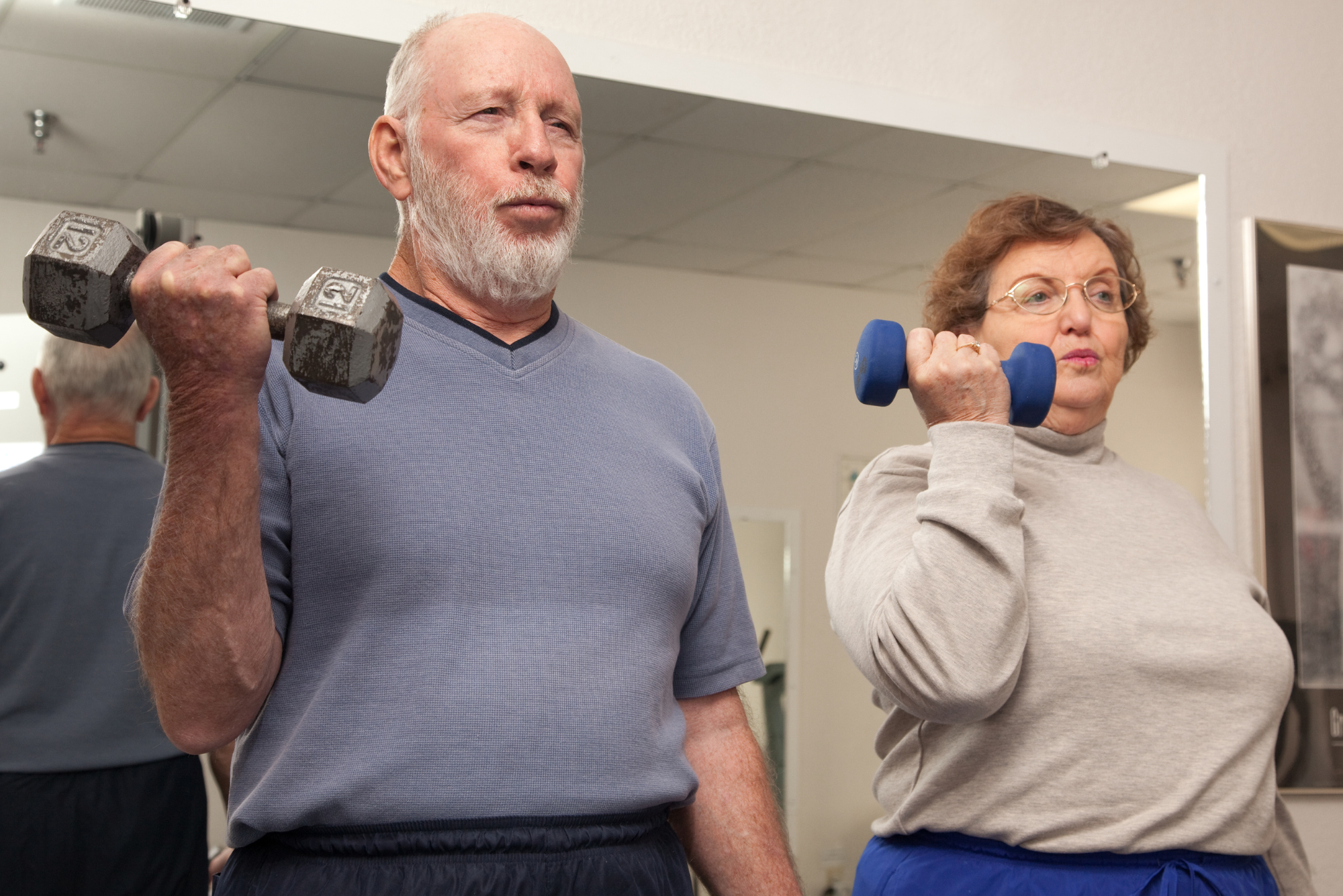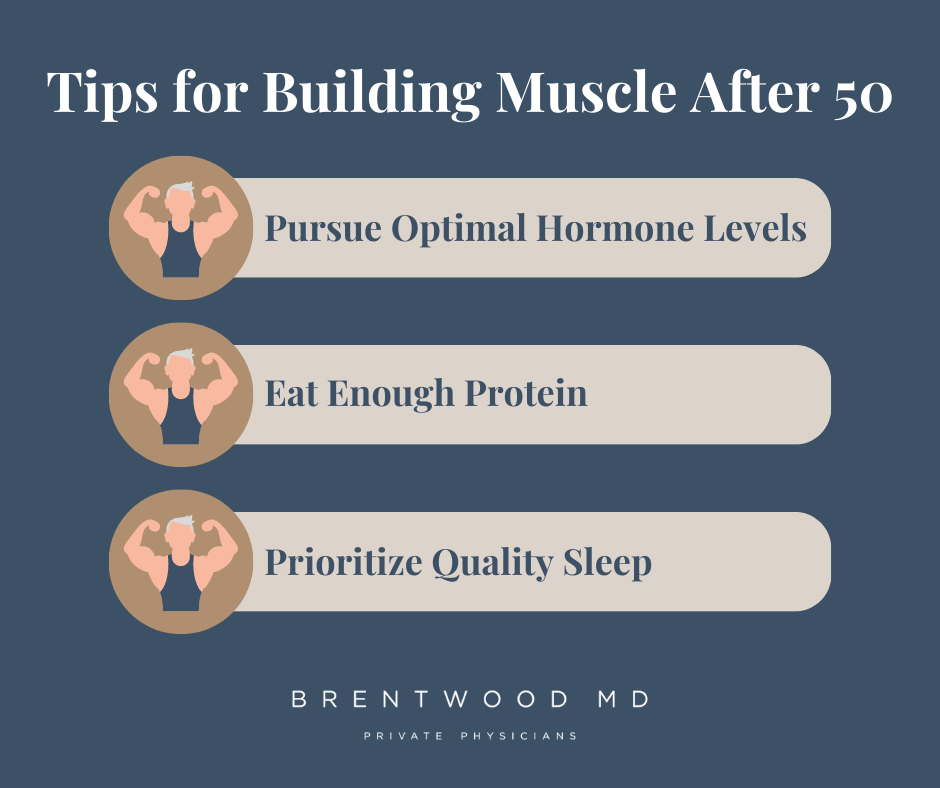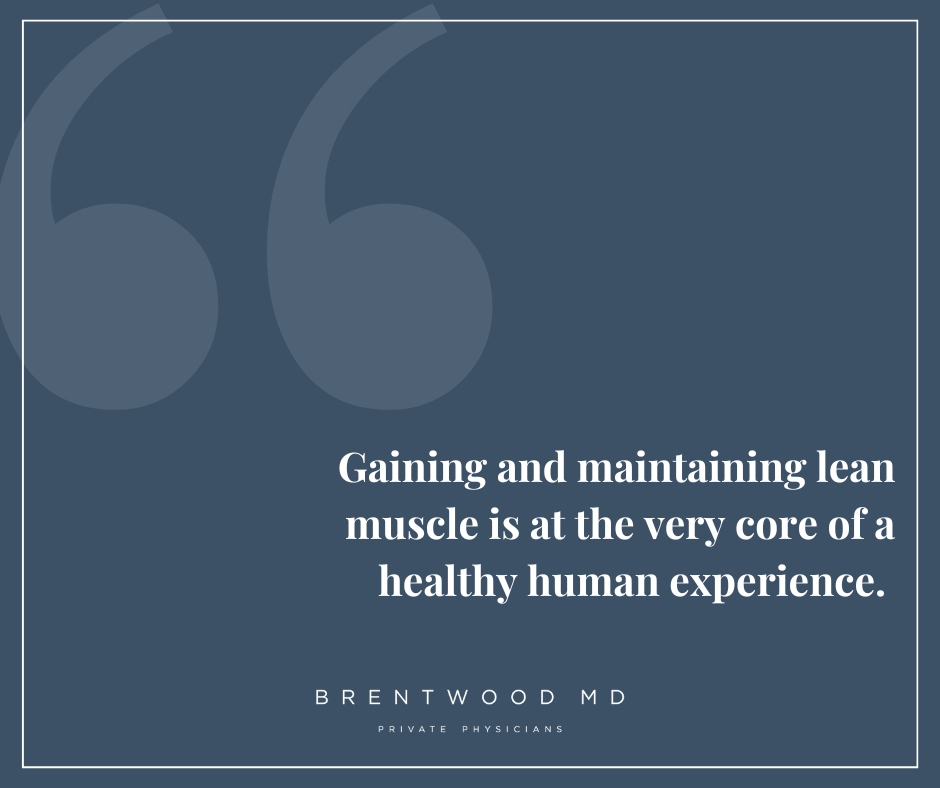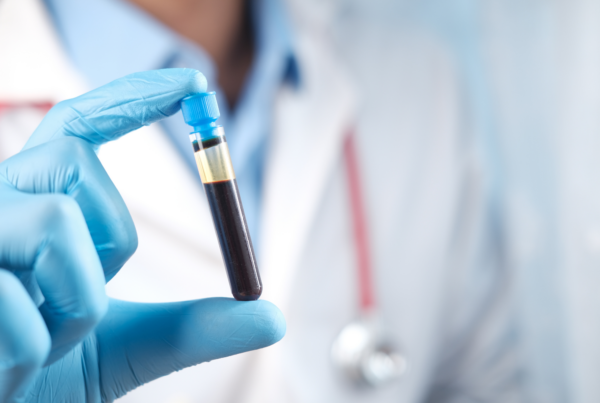If you’re over 50, you probably understand the frustration of misplacing your keys. Or the remote. Or your glasses.
That’s bad enough, but anyone in this age demographic is also fighting a desperate battle against two more serious losses:
- Loss of lean muscle mass (sarcopenia)
- Loss of bone density (osteopenia)
The human experience demands strength, and that means strong bones and muscles to move through life. In this post, I’m going to focus on muscles.
While sarcopenia certainly affects the way you look, muscle loss isn’t a vanity metric. Maybe you associate strength training with the mirror — after all, who doesn’t like a toned torso? But muscle mass is more than the ultimate flex.
In fact, your health and vitality suffer when your strength declines.
Building muscle after 50 may seem daunting, especially if you haven’t prioritized it, but people can and do make a comeback after they hit this milestone.
Weight loss and exercise are great, and people (including me!) discuss them at length. But fitness isn’t just about not being fat. It’s about having an adequate amount of lean muscle on your frame. Gaining and maintaining lean muscle is at the core of a healthy human experience.
Building Muscle After 50: A Longevity Strategy
When you’re young and fit, it’s hard to conceptualize age-related changes in your body. But the average person loses three percent of their lean body mass after age 30 — and that percentage jumps as the decades go by. This is why most people in their 50s and 60s, and then in their 70s and 80s, tend to have similar physiques — the visual loss of muscle definition.
Every once in a while, though, you’ll see an 80-year-old who doesn’t look their age. They look strong, upright, and dense, and they move with fluidity, balance, and grace. The difference? Adequate lean muscle.
Of course, our primary concern with muscle loss isn’t looks. It’s health.
Muscle loss is a primary driver of aging. As strength declines, the risk of injury, illness, and death rises. Muscle loss produces losses in balance and coordination. Simple, everyday movements you never thought twice about, like changing walking surfaces, become potential hazards — a problem compounded by bone density loss.
Suddenly, tripping over a curb goes from a minor annoyance to a life-threatening accident.
And I’m not exaggerating. Consider this: 50% of older individuals who sustain hip fractures die within 12 months.
Performance and vanity metrics have their place, but what we’re talking about is really a proactive strategy for longevity. Building muscle before and after 50 provides the strong infrastructure you need to stay active and healthy into older age.
You can’t be on defense here — you have to have an offensive mindset. If the default is to lose muscle every year, you have to invest your time, energy, focus, etc. into strength training. You have to challenge your muscles and bones with more than they can handle to change the status quo from loss to building.
Tips for Building Muscle After 50
If you haven’t yet reached age 50, you’re not off the hook. This is an optimal time to build up strength ahead of time so your older self only has to maintain it.
Many, many people, however, aren’t where they want to be by their 50th birthday. But that doesn’t mean they’re doomed to weakness and injury. Plenty of people have made a comeback after 50, and you can too.
Tip 1: Pursue Optimal Hormone Levels
Most people beyond 50 don’t have optimal hormone levels for building muscle. You’re simply not the same as you were at 21.
When we talk about building muscle, we’re looking at having a nervous system that’s properly firing and activating muscles. What triggers the sending of these signals to reproduce bone and muscle? It’s hormones. Hormone optimization therapy is a whole separate topic, but it’s a conversation worth having with your doctor if you want to build muscle over 50.
Tip 2: Eat Enough Protein
Protein is the building block of muscle, so adequate dietary protein is crucial. The current recommended daily allowance of protein for adults is 0.8 grams per kilogram of body weight — up to 2 grams if you participate in endurance or strength training.
You can calculate your daily protein needs by multiplying your weight in pounds by 0.36. You can also use an online calculator like this one. According to this formula, on average, men need 80–100 grams per day, and women need 40–60 grams.
A word of caution: Too much protein can place a burden on your kidneys, liver, and even your heart. Overloading won’t make the process go faster, but it could be harmful. Your doctor is a powerful ally in helping you find that sweet spot.
Tip 3: Prioritize Quality Sleep
Along with moving and feeding your body well, sleep is a surprising hero of strength building. All recovery happens during sleep. It’s not enough to take time off from exercising or to nap; you need consistent, quality sleep — and adequate deep sleep — if you want to build lean muscle.
Invest in the Back Half of Your Life
Among the many goals for the second half of life, fitness ranks at the top of the list. True fitness isn’t about looking sleek or jumping on the next diet fad. It’s about having a strong frame with adequate lean muscle to move you through each day.
Make an investment in your health and vitality. Life gets more difficult to navigate when you’re weak, but everything gets easier when you’re strong.
A good starting point for building muscle after 50 is finding your team — a team of experts you trust to educate and motivate you.
Few individuals have all the skills necessary to guide you through all these tips, so look for a team. Hire a trainer. Talk to a nutritionist. Find a knowledgeable doctor to help you optimize your hormones. Deploy your budget in the areas where you want to make the greatest gains.
Most of all, make the commitment. People make comebacks after 50 all the time, but it’s not by accident. You have the power to go on offense today — and make a real difference in your longevity.

Dr. Aaron Wenzel is a concierge physician specializing in the care of fast-moving entrepreneurs, executives, and public figures in the Nashville, TN area. Dr. Wenzel’s diverse life experience and extensive training in family medicine, emergency care, nutrition, and hormone replacement therapies give him the unique platform to provide unmatched care for his patients.









